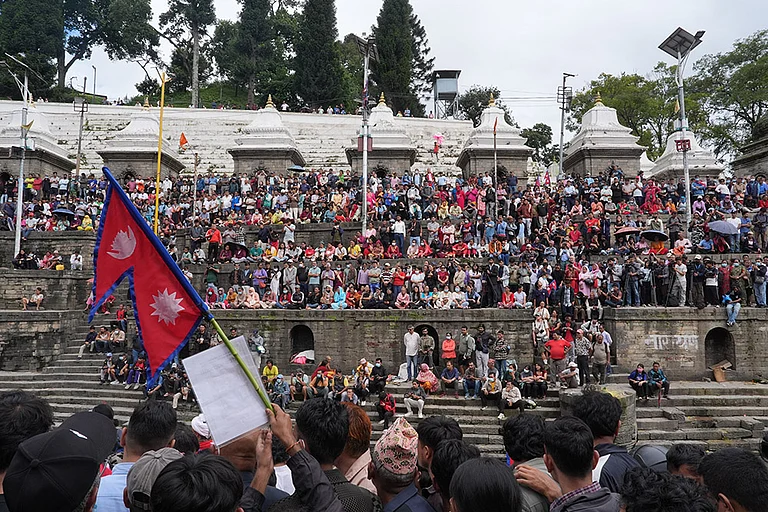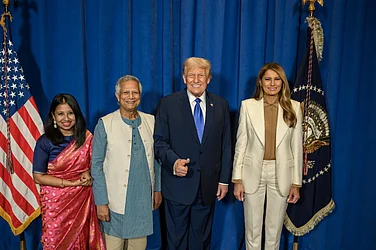
- Former Chief Justice Sushila Karki has been sworn in as Nepal’s interim Prime Minister, becoming the country’s first woman to hold the post, with a mandate to govern for six months until new elections.
- In her first address, she honoured those killed in the Gen Z protests as martyrs, pledged compensation for their families, and promised investigations into violence during the unrest.
- Karki stressed national unity, vowed to tackle corruption and economic challenges, and emphasised that her government’s role is transitional, handing power to the next elected parliament.
Sushila Karki, former Chief Justice of Nepal, was sworn in as the interim Prime Minister late Friday, becoming the country’s first female head of government. In her first address, she honoured those killed in the Gen Z protests as martyrs, pledged compensation for their families, and promised investigations into violence during the unrest.
At 73, she took the oath of office administered by President Ramchandra Paudel, who at the same time dissolved the House of Representatives. Her appointment ends the political vacuum that followed the fall of the K.P. Sharma Oli government, which collapsed amid widespread violent protests earlier in the week.
Her interim cabinet is expected to be expanded soon, with Kul Man Ghising likely to become the new Energy Minister. A lawyer named Om Prakash Aryal may also be brought in as a minister. The government has been tasked with holding fresh parliamentary elections within six months.
Karki’s appointment was backed by youth protesters—known collectively as “Gen Z”—and her reputation for integrity and strong judicial leadership played a key role in her selection. One of her preconditions for taking the job was the freedom to conduct investigations into corruption and excessive use of force by police during the protests.
Major political parties, however, stayed away from her swearing-in, signaling their reservations.
She has made clear that her government will serve only for six months, handing power over to a newly elected parliament. In her first major address, Karki declared that all those killed during the Gen Z protests would henceforth be recognised as martyrs, with financial assistance pledged to their families and support for the injured.
Karki appealed for national unity in the face of Nepal’s deep financial crisis, calling on all stakeholders to work together to rebuild the country. She emphasised that her team is not in power to hold onto authority, but to serve the people. She also expressed deep concern for the families who lost loved ones, especially students, and promised investigations into violence and vandalism during the protests.
She concluded by underscoring that her government will draw inspiration from the Gen Z generation’s demands—economic equality, end to corruption—and reiterated her commitment to restoring democracy and stability in Nepal.


























